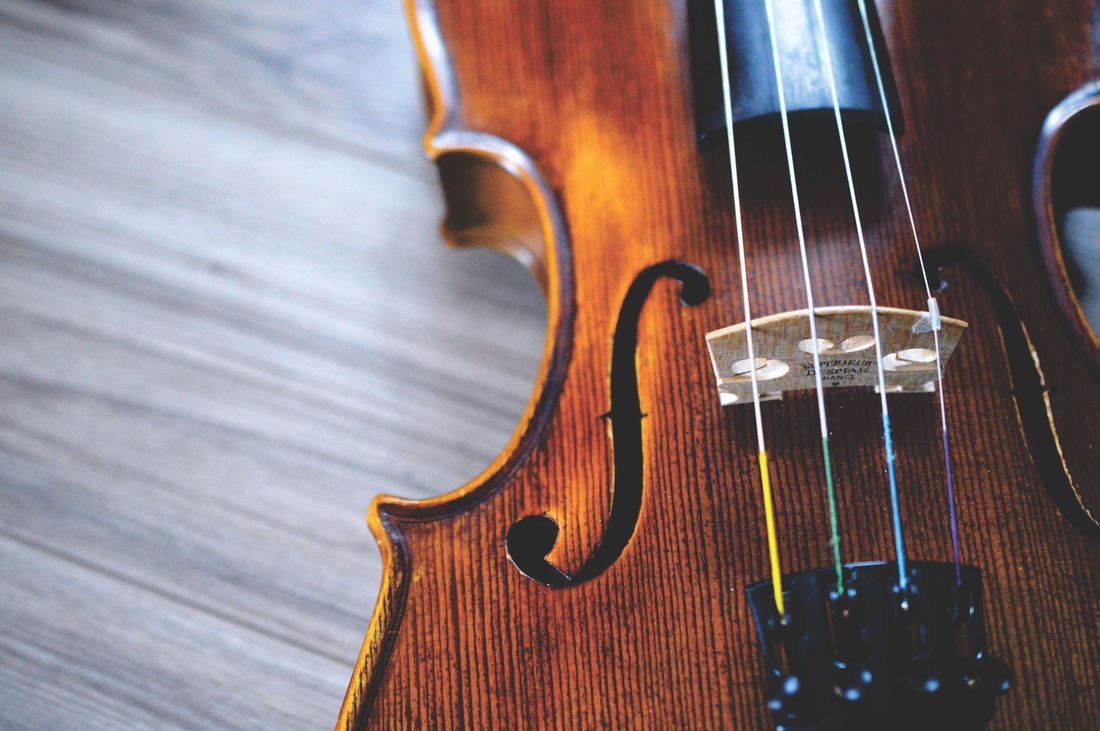|
When I was little, and my Oma would take my sister and I out for a trip to the ocean, or inside for pasta in her little cottage, she would play music. Cassettes, mostly, but the radio, too. I remember always fiddling with the black tape when she would have me fetch one from the glove compartment. That, of course, was met with a stern eagled-eyed glare. But there were these cassette tapes, later CDs, that she would play for us. Stories of mystery, fantasy, or just plain history, set to the most marvelous music. I would listen to them as I fell asleep in the car, or when she would knit in her chair and I would lay down by the fireplace. Stories about children and their adventures with composers like Bach, Beethoven, Mozart, Tchaikovsky, Vivaldi...and set to said composer's music. I would shut my eyes and imagine I was there, watching from the shadows. I was on the hunt to find the missing violin in shining city of Venice...I was listening to Beethoven hammer and pound on his keys upstairs...I could smell the salt air as Owen and Megan slept in a church in the woods, weary on their quest to cure their mother by the touch of a unicorn...I was there, hoping, praying, that Tchaikovsky would gather his nerves and perform at Carnegie Hall in New York. These are the stories that made me. And this was the music that stayed with me, for longer than I would ever have imagined.
When I was little, I would watch those old Barbie movies, right when CGI was starting out. They're ridiculous now, but when I was young, they were stories. Stories with the most wonderful music. The Nutcracker and Swan Lake, with Tchaikovsky's ballets of the same titles, and Rapunzel with practically all of Dvorak's New World Symphony. I would feel the music in my bones. I was awestruck with Clara and Prince Eric's dance of the Sugar Plum Fairy. Her, with her sparkling pink tutu and crown upon her head, and him, with his steady, graceful movements. So when I was very young, I danced ballet...for a time. There is a part of me that regrets not sticking with it, but I am not the same as I was ten years ago. I could not have known then what I know now. I could not have known myself. All of my life could change, but that music, some of it hundreds and hundreds of years old, always stays the same. Even in college, as I close my eyes, I still feel the way I did so many years ago. How could one person compose so many parts for so many instruments, and have it be so passionate? How can that come from someone's mind? How do we hear music before it is even on paper? What masters! For the life of me, I wish I knew how they did it, but for now, I am content to sit back and listen. I bring that old radio station my Oma would always blast in her car with me via their iPhone app. Classical 99.5, WCRB, Boston. But many things have changed. I know the hosts by name. I even follow some of them on Instagram and Twitter. I make dinner for myself to their Sunday Night at The Opera and recordings of The Boston Symphony Orchestra on Saturdays. And whenever I listen, I am transported back to the sleepovers with my Oma, when we would read and drink tea with the radio on in the background. We can never tell what will influence us as we grow up and discover ourselves. I grew up with stories. I am a writer who (should actually finish what they write) listens to opera, classical, jazz, and the occasional K-pop (though I have no idea where that comes from). Point is, I'll take Beethoven over Beyoncé any day. I'm no musician, but it's a part of something that I love, that I could not live without. We never think about the things that make us, the things we carry on over from childhood into adulthood. And, to make matters even more interesting, we're not done yet. There is still so much of us we do not know. We never know what will come into our path tomorrow, or what we will remember that we were once so close to.
0 Comments
To be a writer, you must understand pain. It is not an easy thing to do, nor is it something you can create for yourself. To be a writer, or at least, to be a good one, means that you must have lived, that you must have an understanding of the essentials of humanity. Not just love and hate, but more complex "feelings," or emotions. The sting of bitter betrayal. The yearning in your heart for something unattainable. The drive and ambition it takes to become as cold as steel. The feeling you get when you see a loved one walking down the road one day alongside a person you do not like and meeting their eyes, just for a second, only to see their confusion at your pain. These are the things we feel that we cannot describe, that there are not deep enough words for. It is the writer's job to channel these complex human emotions and translate them into circumstances and plots and themes that are relatable to their readers.
But why pain, as opposed to more positive examples? Pain grows you. Pain helps you understand where other people are coming from. Pain gives you empathy. It is an understanding of yourself and others that cuts deeper than a simple conversation. To understand one's pain is to look them in the eyes and share something beyond words. To be broken is to glue yourself back up again, stronger this time. Happiness makes you numb. If that were not so, then there would be no divide between the rich and the poor, no lack of understanding between the refugee and the rescuer. I believe that if we truly understood pain, we would not act and live as naively as we do here in America. Despite our differences, we could see the real being behind the face or body. We don't have to agree with their political leaning or way of living, but we can understand! And we could see what lies there instead. In my opinion, happiness and contentment, for prolonged periods of time, is the prescription for mediocrity and apathy. (Joy, however, is not like happiness. It is not like pain. Joy is something you are, not something you feel. It is one's choice to be joyous, to keep hope alive and burning. You can 'feel' pain and joy at the same time, they are not the other's antithesis.) This is only a snippet of what writers must understand, to truly understand the human condition and breathe life into characters they create from the graphite of a pencil tip. Struggles, motivations, ways with handling situations, these are our characters, and at the same time, they are us. The balance therein lies not in allowing our emotions, whatever they may be, to consume us. Our experiences are what can shape us, but they do not define us. We can choose who we will be despite our circumstances. And perhaps this is where we as writers differ from our characters. We may wield the pen, but we are not the product of it. We direct our characters' paths and feelings, drawing on our own lives to help them fully express themselves. They are, in a way, the image of us. But not us. And this is why we as writers must live and understand what it means to be a human being, so that in turn our characters will reflect this, too. Because we are not writing these characters only to bury them. We write them because maybe they, the reflections of ourselves, can influence the real world around us. We've all been touched by a certain scene in a movie, or conversation in a book, in many different ways. We call some of the best of these 'classics' because they stand against the test of time. We relate to them, because in a sense, they tell us things about ourselves. And this is what I strive to do as a writer, to influence readers, whoever they are, and teach them something about themselves. That being said, when I am lonely, or when I feel pain, or when I am caught in the middle of a maelstrom and can hardly see in front of me, there is a certain kind of peace about it. That this is life, this is what everyone who has ever lived before me and is living now and will someday live, experiences. The situation can be resolved in whatever way it must, but the feeling, the bare bones of the stuff, that is what grows someone into a deeper understanding. Whether the interpretation is true or skewed is irrelevant. We all feel the same emotions, and the varied nature of them is what makes us human. Writers have always influenced their readers in different ways. I doubt Kurt Vonnegut understood humanity in the same way C.S. Lewis did. And yet, their writings both bring to light so many facets of what makes us, us. To be a writer, you must understand pain. Understand pain, I said. Don't go jabbing yourself with a pencil, you crazy kid. Live. |
Marijke FultonI'm a college student at Liberty University working on a Degree in English. I write, I bake, and I occasionally fall up stairs. Archives
April 2017
|



 RSS Feed
RSS Feed
